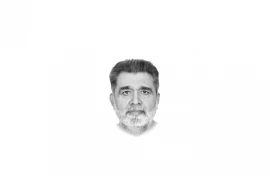
International Human Rights Day, observed annually on December 10, serves as a reminder of the need to uphold the dignity and rights of every human being. It marks the adoption of the Universal Declaration of Human Rights (UDHR) by the United Nations General Assembly in 1948, setting a global standard for human rights protection. However for Pakistan, despite efforts by both local and international entities to protect fundamental freedoms, the country's human rights record remains deeply troubling, marked by restrictions on freedom of speech, gender-based violence, persecution of minorities and enforced disappearances.
With the recent introduction of the contentious 26th constitutional amendment, the powers of the Supreme Court, the chief guarantor of fundamental rights in the country, have been clipped. United Nations Human Rights chief Volker Turk recently expressed concern that the amendment would "seriously undermine" judicial independence, and that constitutional reforms must be "in line with international human rights law". The UN Human Rights Committee has also raised questions over rights violations in Pakistan, especially during recent protests, anti-terrorism policy, accountability laws, rampant enforced disappearances and women's rights violations. Amnesty International too is worried about "rampant human rights abuses" in the country.
Successive governments are responsible for the situation reaching this point. In Pakistan, the state views human rights as a favour to the people. While the country is quick to criticise others for human rights abuses, its track record leaves much to be desired. The government must take a more holistic view of the country's ills. Rampant violations by security and law enforcement bodies must be curtailed and punished. Freedom of speech, expression and assembly should be allowed to be practised rather than remaining an aspiration of the people. The state must show that it cares about its people.

1724760612-0/Untitled-design-(12)1724760612-0-405x300.webp)











COMMENTS
Comments are moderated and generally will be posted if they are on-topic and not abusive.
For more information, please see our Comments FAQ